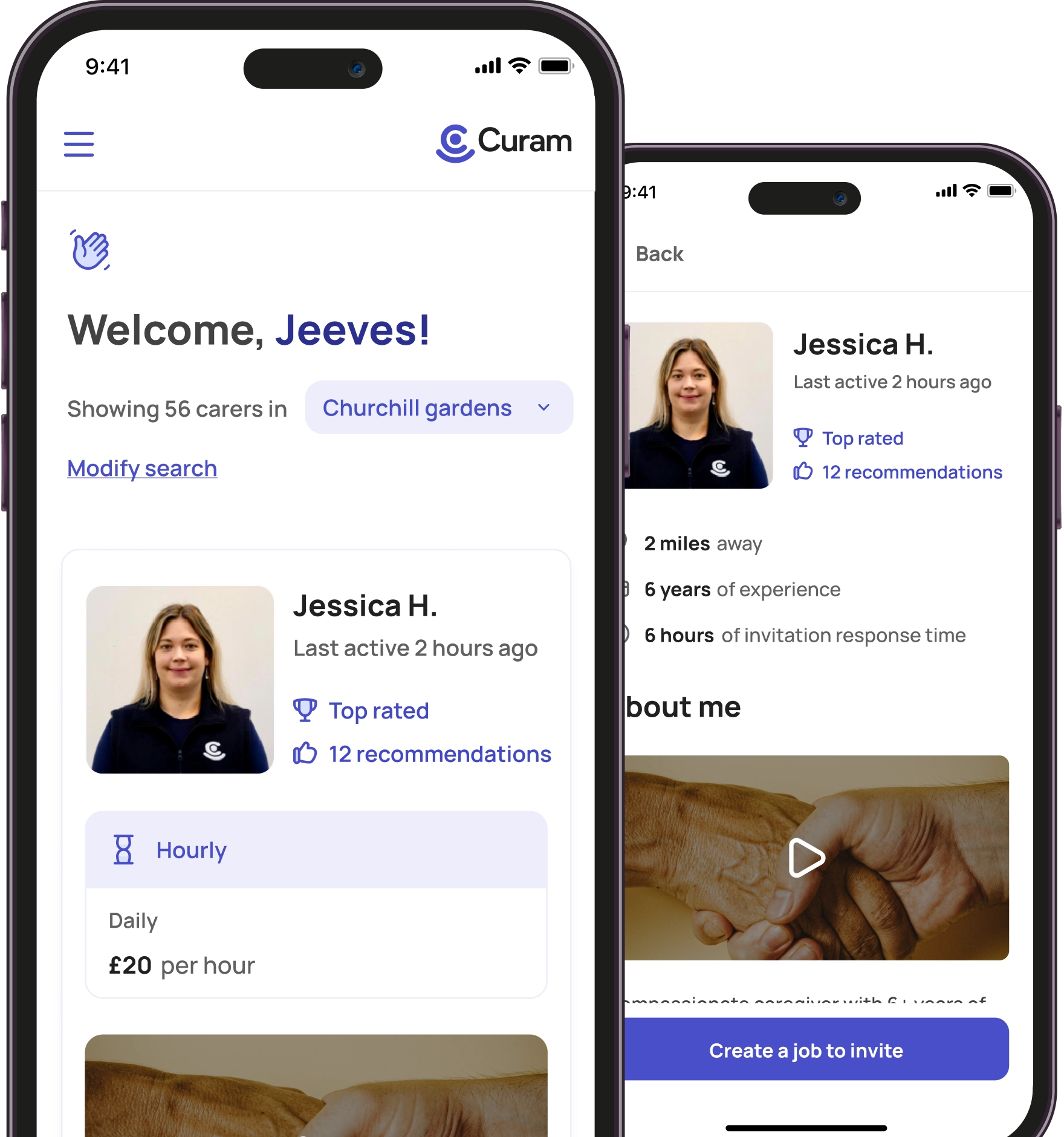Annika Eade
August 31, 2021

Many people in need of care are being neglected or overlooked, whilst the vast majority of carers receive woefully low pay rates, their vital work earning often no more than the minimum wage. In the absence of any tangible promise of increased funding from the Government, how do we begin to rectify these complex issues?
This essential sector has faced the brunt of continued council budget cuts, has been at the heart of the COVID19 crisis and continues to face perennial recruitment problems further exacerbated, certainly in the short term, by Brexit.
This is where Curam comes in, established in 2018, this health tech platform is bringing positive disruption to the ailing UK care sector. Curam’s model of self-managed care is designed around connecting clients in need of care with self-employed carers.
However, it goes further than just being a jobs board for the self-employed. For a carer to be able to register on the Curam platform, they are first
• Vetted by Curam’s carer support team, to ensure they have a valid enhanced DBS certificate and the right to work in the UK
• Share details of two referees
• Provide photographic ID
To some people being self-employed suggests a lack of support and a potential struggle to get clients. But with Curam’s technology this is not the case. Curam markets the carers and finds them clients and then provides them with a secure and guaranteed payment system.
Carers working with Curam also benefit from being fully insured and have access to free CPD training courses so the carers can update and build on their existing skills, all while retaining control to set their own charge rates and the hours they work.
Curam is able to offer all of this infrastructure with a charge of 12.5%+VAT which translates into carers taking currently home on average £14 per hour after Curam’s fees. This translates into some impressive figures as, thanks to their model, Curam has self-employed carers earning as much as £32,000 a year.
However, it’s not just about giving recognition and equity to the carers, Curam’s model is also designed around helping people and their families in need of care. Giving carers the central tenet of the Care Act, namely choice and control.
When you analyse the possible outcomes for people awaiting hospital discharge who have access to readily-available, reasonably priced care, it sounds like a pipe-dream.
The Newton report calculates that across the UK, by implementing the right care package, at the right time, there is a potential saving to be made of £1.2 BN to the NHS. However, it’s not just about saving the NHS money, the psychological and physical benefits achieved by supporting someone to return to their home and maintain their independence quickly and safely are immeasurable.
Curam’s easy-to-use app allows clients to advertise their care requirements, as well as search, choose and interview the carers, completely free of charge. This innovation in care provision has resulted in turnaround times where clients have hired a carer in as little as an hour.
Curam is now in discussions with local authorities across the UK and is already working with the following councils to offer clients in these areas access to Curam’s network of self-employed carers:
• Hillingdon,
• Greenwich
• Oxford
Although there is no one catch-all solution to solve the current crisis in the UK social care sector, Curam's innovation that supports both carers, and the people in need of care, is undoubtedly bringing about the much-needed positive disruption this industry needs.
A significant milestone was achieved in June of this year – the 500,000th hour of care was delivered on the Curam platform. The historic average hourly rate for carers who were paid for these 500,000 hours was £13.90.
This truly a ground-breaking innovation which is demonstrably solving the problem at the core of the social care sector – the elephant in the room, low carer pay. If you don’t solve that, you don’t solve the problems of the care sector.
 Back
Back






